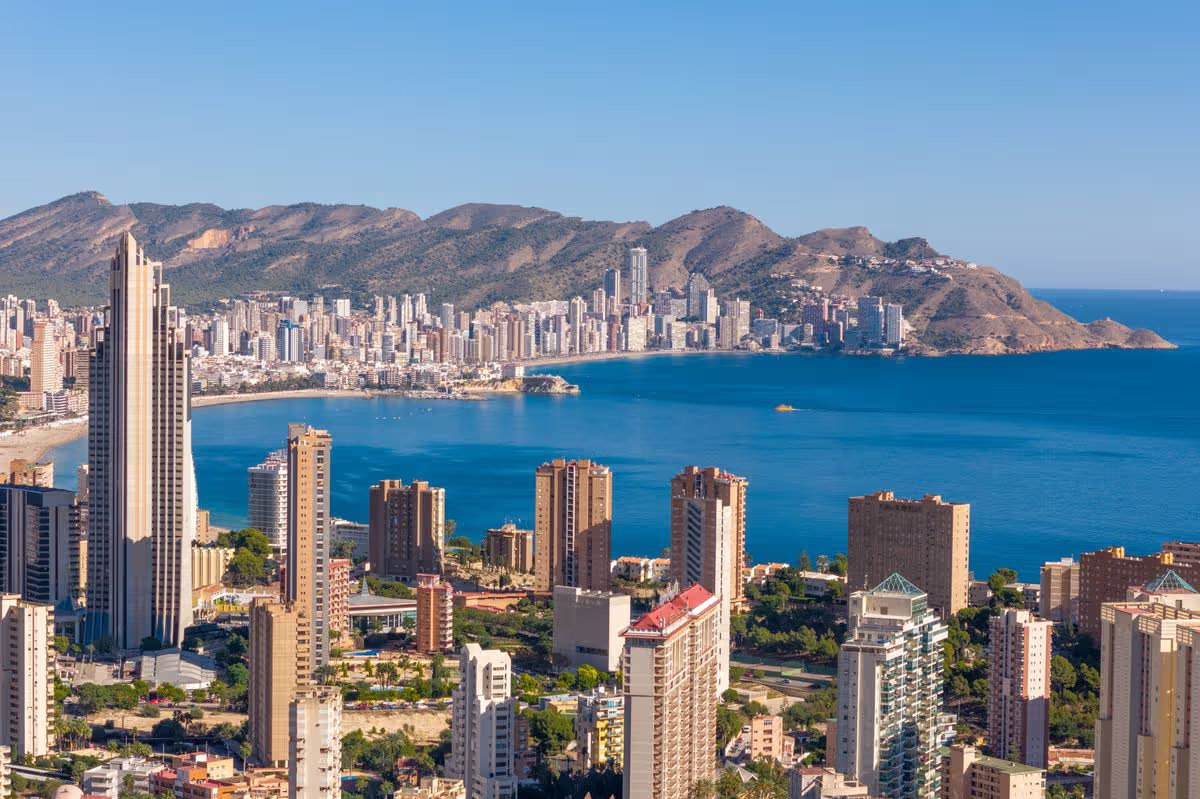A Brit in Benidorm has given important advice to anyone who may be crossing the road when they’re in Spain, sharing things to look out for and why you should always be vigilant
A British expat in Benidorm has given some travel advice to people crossing roads in Spain, saying that he sees “so many people getting this wrong”. Wherever you are in the world, it’s important that you’re aware of your surroundings at all times and cross the road safely – even if you’re on holiday. We all had it drilled into us from being young that you’re supposed to stop, look both ways, and listen before stepping off the curb.
However, Frank, who lives in Benidorm, has expressed his concern that people who have come from the UK are not crossing properly, and it’s putting them at serious risk.
He said that he’d noticed people who are from the UK looking in the wrong direction, reminding people that they need to “look left” rather than right in order not to get run over.
TikToker @frankthestagman said: “A lot of people look the wrong way, and that can cause problems. And then of course, when you’re crossing the other way, you’re looking the other way”.
Frank said that “if you’re not sure,” you need to “look both ways” and then “nothing’s going to happen” when you’re crossing the road.
“The other thing as well is it’s really sad because sometimes you’ll see people crossing the road, they don’t quite understand that when they’re crossing over, you know, sometimes there’s people in the middle of the road, and you get Spanish drivers, or drivers here in Spain, and what they’ll end up doing is honking at them and all that. A bit unfair, but it is what it is,” Frank continued.
He urged Brits not to “wave your arms round arguing” and just focus on crossing the road safely to “get where you’re going”.
Frank warned that sometimes “the traffic will speed up” when someone is crossing, labelling it as “a bit unfair,” but people need to just ensure that they’re being as careful as possible.
He also said that if you’re a driver in Spain, don’t necessarily expect a thank you if you let people cross. While people from the UK are overtly polite, Frank said, sometimes Spanish people cross the road without ‘letting on’.
Frank reckons that you can always spot a Brit or someone from Ireland because they’ll give a thumbs up and a “cheers” when you’ve been let across the road.
In the comments, someone said: “I actually love the Spanish pedestrian crossings cos they actually have the countdown to when the lights are changing”.
How do you cross the road as a Brit in Benidorm?
Your first look should be to your left, not your right, because that’s where traffic will be coming from. It’s easy to forget this, especially on quieter streets or when you’re distracted, so make a conscious effort to pause and look left first.
Pedestrian crossings in Spain are usually marked by white zebra stripes, much like in the UK, but the rules and driver behaviour can be quite different. In the UK, drivers are generally required to stop for pedestrians waiting at zebra crossings, and most do so reliably. In Spain, while the law also requires drivers to yield to pedestrians at marked crossings, in practice, drivers may not always stop unless you are clearly about to step onto the crossing, or already on it.
You might notice that Spanish pedestrians often assertively step onto the crossing to signal their intention to cross, rather than waiting for cars to stop first. As a Brit, you might be used to waiting until every car has stopped, but in Spain, you sometimes need to show your intention more clearly. However, always make eye contact with approaching drivers to ensure they’ve seen you, and never assume they will stop automatically.





